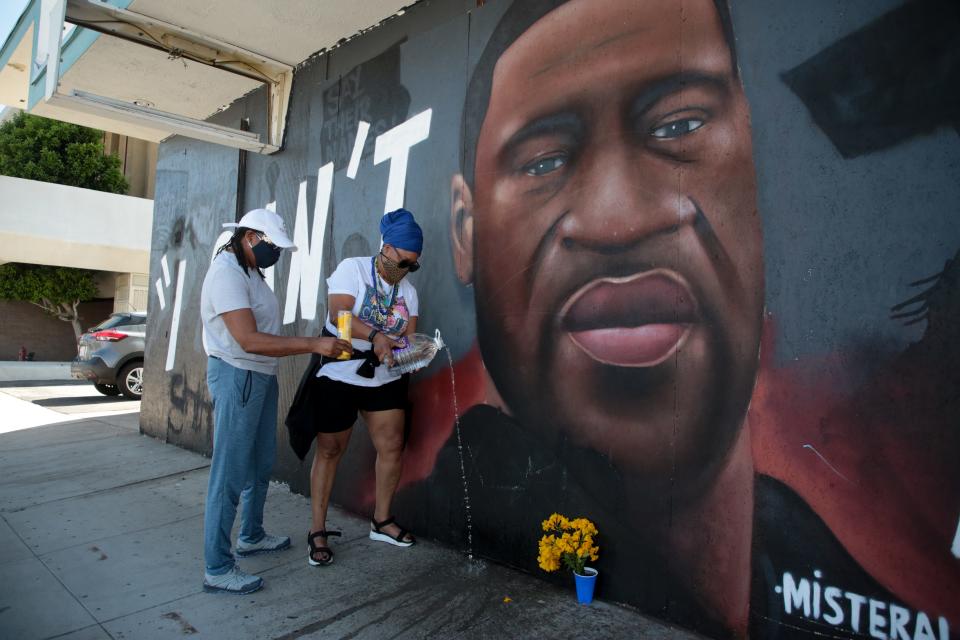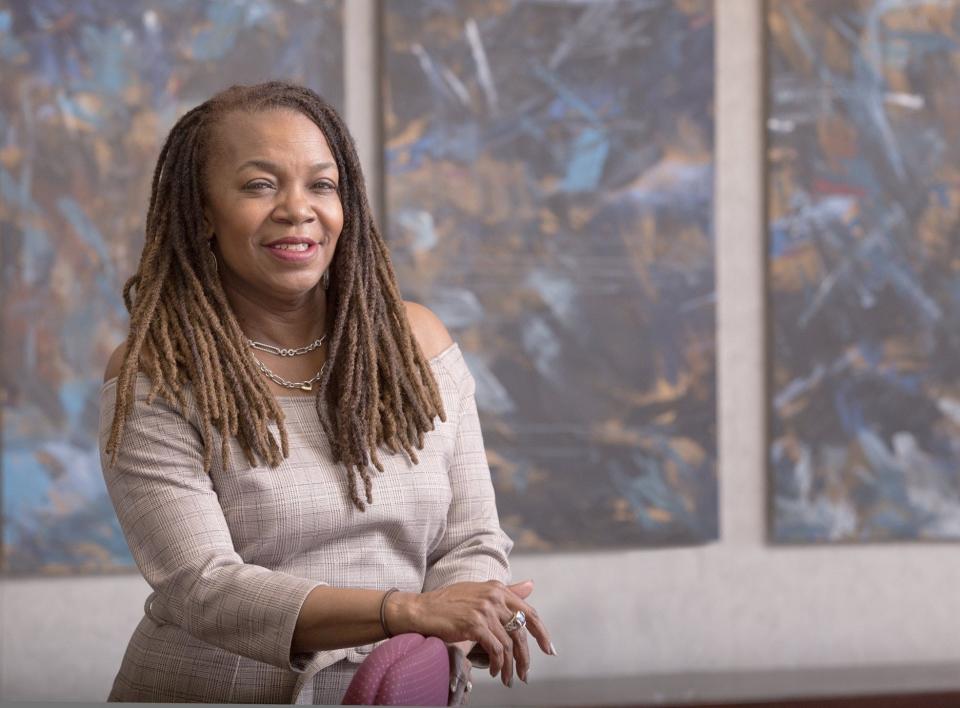Horror can't be unseen. Racial justice call strong 3 years after George Floyd's murder| Opinion
- Oops!Something went wrong.Please try again later.
Stephanie Hightower is president and CEO of the Columbus Urban League.
Today marks the third anniversary of the passing of George Floyd, a date and event that I can never forget. Similar to a childhood memory of hearing my mother cry out when she watched President Kennedy’s assassination nearly sixty years ago, I experience an immediate and vivid emotional response to “I can’t breathe.”
The lesson I try to take from these and other violent tragedies is that our losses can and should deepen our empathy and compassion for one another. Black, white, brown—we share a common understanding of grief and a collective commitment to use the depths of our loss to catapult us to a better place.
Opinion: A year after George Floyd's murder, change starts with new way of thinking
Jessica Johnson: "We need to pray for and forgive Derek Chauvin"
We can’t “unsee” moments of horror. We can only look for how they impact our views and the ways we work together to create a better world.
How has our perspective shifted over the last three years?
Racial injustice again became a focal point. For example, a recent national survey by Edelman found that about 60% of Americans said they would not work for a company that didn’t stand up for racial equity. This means the eyes of our workforce read a lot more than a LinkedIn profile when choosing future employers.
More: Redlining practices decades ago still influence life in Columbus neighborhoods
All sectors will be questioned. It’s not just government and private sector entities that have encountered greater scrutiny. In the nonprofit world, many funders and donors re-examined and revised their strategies to correct “philanthropic red-lining” where black-led organizations received fewer overall funds and significantly less general operating dollars. According to a 2020 report from the National Committee for Responsive Philanthropy, only 1% of grantmaking from the 25 key philanthropic funders was specifically designated for Black communities in 2016-2018, even though a combined 15% of these cities’ populations are Black.
Likewise, all sectors will face skepticism when awareness fails to lead to action. In that same Edelman poll, a nearly equal number of people, 62%, rated companies as “mediocre or worse” on following through on a commitment to address racism in the workplace and community. Similarly, an update to NCRP’s report on community funding demonstrated that support for black-led organizations doubled between 2018-2020, but that meant only progressing from 1 to 2.4%.
New thinking
For your Columbus Urban League, the past three years have been a whirlwind. We helped keep 1,975 families in their homes through rental and housing assistance, put 900 teens in internships to gain real world experience and a paycheck, boosted 9,861 Black-owned businesses and entrepreneurs, and so much more.
And, we, too, re-evaluated our thinking. We realized that our purpose calls us to do more than just point to problems and instead spotlight real strengths.
Hightower: Shift needed. Focusing only on 'bad' feeds biases, challenges Black people face
The youth we serve aren’t at-risk, they’re at potential.
With the right mentoring and resources, they will excel in school and life. The dads we support are highly involved with their children. With the right coaching and access to information, jobs and basic needs, they will stabilize and support their families.
The small businesses we’re cultivating do experience real disparities in securing capital and loans. But we can do more to fix that problem by focusing instead on the great success of America’s fastest-growing segment of entrepreneurs, Black women. We may work with Columbus’ urban areas but the inclusive economy we seek to co-create boosts the entire central Ohio economy.

It may sound simplistic but it’s really true: we all win when we’re all in.
For companies with a conscience, we applaud your effort and encourage you to continue. As research from McKinsey repeatedly tells us, your efforts to be accountable and contribute to the greater good, also will earn you even greater profits from a more diverse leadership team.
For funders and donors to nonprofits, thank you for your generosity and for embracing the concept of trust-based philanthropy. Kudos for recognizing that great programming also takes a strong organizational infrastructure to execute.
For people impatient for change and for those who disagree that change is good or necessary, please remember our shared humanity. George Floyd died when someone dehumanized him because of who he was and what he represented. Fear and hatred triumphed over love and compassion.
Let’s use that memory to rise above and find a place of compassion and respect.
Stephanie Hightower is president and CEO of the Columbus Urban League.

Get more political analysis by listening to the Ohio Politics Explained podcast
This article originally appeared on The Columbus Dispatch: Opinion: What has changed since murder of George Floyd

